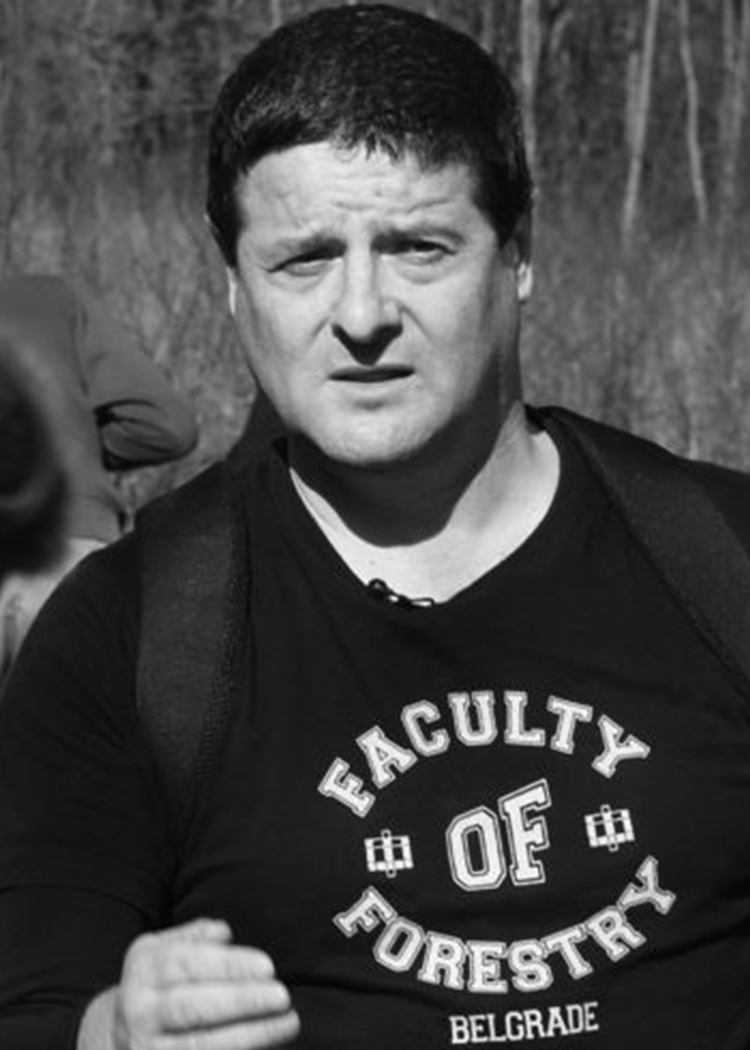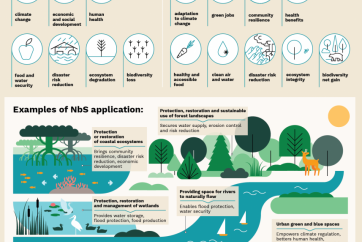Nature-Based Solutions (NbS) are a vital complement to decarbonisation, as they can help address the global challenges such as climate change, reduce disaster risk and enhance community resilience. One of the important NbS approaches is Forest Landscape Restoration (FLR). Although relying on longstanding traditions and gained knowledge and experiences, both NbS and FLR are relatively ‘young’ concepts with high potential to improve current practices of ecosystem restoration in the Western Balkans. Currently, forest restoration is planned, implemented, and managed mainly on stand level, aiming (in most cases) to restore forest composition and structure at some historical reference (for example 100 years). Introducing restoration at the landscape level brings new opportunities, as well as future benefits, especially if it is going to be used in conjunction with other NbS. A further improvement is an introduction of the Restoration Opportunities Assessment Methodology (ROAM), which combines more criteria in the decision-making process, comparing to the current practice. All these improvements are facilitated by the ADAPT: Nature-based Solutions for resilient societies in the Western Balkans initiative, funded by the Swedish International Development Cooperation Agency (SIDA) and implemented by the IUCN regional office for Eastern Europe and Central Asia.
One of the pilot sites within the ADAPT initiative that will be focusing on the NbS intervention using FLR and ROAM as key methodologies, is the Municipality of Kraljevo, in Serbia. A group of consultants, consisting of forest restoration, biodiversity, socio-economic, gender, and GIS experts, works together to apply the ROAM practice for the first time in Serbia. The activities are mainly focused on identifying and assessing restoration opportunities for flood mitigation and disaster risk reduction. This will provide key inputs to the Municipality of Kraljevo that is seeking to accelerate and implement restoration as part of the NbS and to scale climate change adaptation and disaster risk reduction, while facilitating the achievement of local objectives and goals, such as water security, diversifying livelihood options, preserving key biodiversity, inclusive planning, etc. Implementation of ROAM methodology will also result in technical guidelines for the most appropriate FLR interventions at the priority site. Working in iteration and interaction with local stakeholders is something new - at least in forestry practices in the region, but our experience shows that introduction of local knowledge is very helpful.
For small counties, like those in the Western Balkans, with limited human resources and where just a small number of people deal with restoration issues, both on research and operational levels, participation in projects like ADAPT is very beneficial. Introducing and facilitating new approaches, together with gaining new and exchanging of existing knowledge and experience will significantly improve restoration efforts and help a whole region to deal with climate change issues.
The article is prepared within the ADAPT initiative, funded by Sida and implemented by the IUCN ECARO.
About the authors

Vladan Ivetić is a full-time professor at the University of Belgrade – Faculty of Forestry and the leading ROAM Consultant in the ADAPT project. His research area covers various aspects of forest restoration, including forest reproductive material and forest establishment. He is a member of IUFRO International Council, the President of Scientific Society Reforesta, and the Chair of CA19128 – PEN-CAFoRR. He published over 150 papers in peer-reviewed journals, and he is a leader/participant in several ongoing international projects and initiatives.

Jelena Milovanović is a full-time professor at the Study Programme Environment and Sustainable Development of the Singidunum University in Belgrade, Serbia and Biodiversity Expert at the ADAPT project. She has been involved in forest genetic resources conservation and climate change challenges research since 2005 and she has made significant scientific and expert achievements in this field. She is the author of many journal articles, chapters, and books on forest genetic resources, conservation issues, and environmental protection, including chapters in international series, and participates as an expert in many international and national projects. More about her references and projects can be seen at https://eng.singidunum.ac.rs/profile/jmilovanovic.





